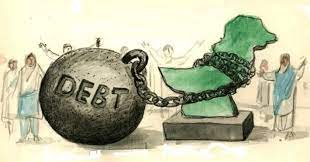Back from the abyss!
Pakistan needs to address the never ending political instability and weak economy dependent on foreign loans and assistance to over come the economic vulnerability
By Muhammad Ragheeb
Much like
the Pakistani cricket team it seems that Pakistan’s economy has managed to
snatch a highly unlikely outcome from an improbable situation, avoiding for the
time being at least a situation similar to Sri Lanka or Lebanon. The precarious
economic situation that developed with Russia’s invasion of Ukraine and the
ouster of IK regime has, so it seems, has ended with Pakistan set to enter its
23rd IMF program as well as secure funding from multilateral and bilateral
sources that would ensure its economy stays afloat for another year or so
before it comes back to the same situation unless we radically change our
historical ways.
Our issues have always been two fold – never ending political instability and a weak economy that has been vulnerable to external economic shocks of any kind. No civilian government has been allowed to function independently and complete its term except a few while all military governments have ended after an assassination, a violent civil war or a civil movement against it, a clear sign that our politics are as stable as a schizophrenic without his medication.
Obviously such a dramatic environment has hardly ever been conducive for foreign investment and economic growth since rapid changes in government and the events that cause them always lead to a change in policies that effect business confidence and investment. Pakistan’s political and economic policy landscape is much like a chameleon’s skin which changes color many times.
Secondly we are a consumption based society reliant on growth driven through expensive foreign loans and large amounts of imports without the export base to support such largesse. Since 1958, every government has started by entering an IMF program to access multilateral financing in exchange for promising to cut back on its import bill, grow its exports and expand tax base but ends up spending its finances on glittery projects like roads and metros and managing the exchange rate to ensure cheap imports for the populace.Eventually like a
shopaholic on a Black Friday, country ends up broke in the end and goes back to
its creditors for more of the same. Such policies also leave us extremely
vulnerable to sudden fluctuation in international commodity prices as we
experienced recently when the Russian invasion of Ukraine sent energy and food
prices soaring and we saw our foreign reserves and currency dipping to all time
low in a matter of months. Untimely fuel subsidy by IK govt, an ill-timed vote
of no confidence against his govt and the constitutional crisis in Punjab only
made the matters worse.
As of now, the economic catastrophe seems to have been avoided as Pakistan’s new government stepped on political landmines by removing subsidies and letting energy and food prices soar which saw inflation rise to 38% for the first time since 1971. Other difficult decisions like banning imports and increasing taxes were also taken which are all prerequisites for the IMF program to restart. The military leadership also stepped in to ensure that the Gulf States would also lend a hand in the form of deferred payments for oil and gas as well as investments in Pakistan’s blue chip state owned companies through the stock exchange.
Decisions to sell government assets such as power plants were also taken to
ensure that 4 billion US dollars could be raised from the Gulf States and Saudi
Arabia which was an IMF precondition for securing its bailout package. Once the
IMF program is approved, doors shall be open for Pakistan to secure funding
from World Bank and other multilateral financial institutions as well, allowing
it to reach its target of 35.1 billion USD for the fiscal year 2022-23.

Going forward our challenge is to avoid a similar situation from developing again. It requires us to not depart from fiscal discipline enforced by the IMF and implementing long term structural reforms for our energy, services and industrial sectors as well as expanding the tax base and ensuring that we avoid current account and fiscal deficits in the coming months and years. Also required is shift from consumption driven short term growth to increasing investment in long term capital growth much like India and Bangladesh have done. In this way, higher purchasing power can be achieved for the country’s population in the long run which in turn will lead to sustainable and viable growth.
This can only be achieved
through policy stability and broad based political consensus. It is time that
our military and civil setups both sacrifice for the sake of the nation and
implement these difficult reforms come what may, rather than use them as a
means to undermine each other for political point scoring at the expense of our
economy. Our neighbor India in the early 1990s also went through similar times
but due to their decision to implement IMF guidelines in letter and spirit and
gradually liberalize the economy they have grown into one of the major economic
powers of the world leaving us far behind whereas once it was us who held the
lead on all economic indicators. Indeed if our neighbors can achieve this then
we too should be able to follow this path to a better future.


.jpg)










Post a Comment